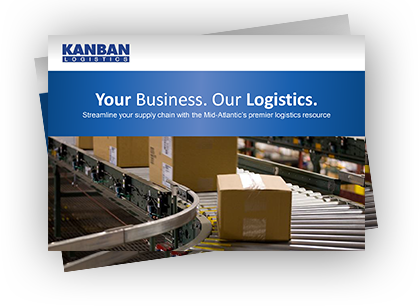Product integrity means everything to producers of food and pharmaceutical products, so it needs to be equally important to providers of food and pharmaceutical storage facilities. We all know that these facilities must go to great lengths to keep products at appropriate temperatures and protect against damage. But, they must also prevent cross contact between products – not only to preserve product integrity, but to protect the 15 million Americans who have a food allergy.
What Is Cross Contact?
Food and pharmaceutical products are sensitive items that don’t always play nice with others. The efficacy of pharmaceuticals and the safe consumption of foods can be severely impacted if those products are exposed to other products. For example, 8 items – milk, peanuts, eggs, soy, tree nuts, wheat, fish, and shellfish – account for 90% of allergic reactions in the U.S. each year. Something as seemingly benign as a pallet of bananas can thus pose serious health risks to the population if, for instance, that same pallet previously held a nut product. The prevention of cross contact (i.e., exposure of one product to another) is therefore paramount at food and pharmaceutical warehouses and distribution centers.
Preventing Cross Contact
There are many steps that can – and must – be taken to prevent cross contact at food and/or pharmaceutical storage facilities. These include adherence to all related GMP and FSMA/Food Safety Plan regulations, as well as the facility’s written policies and procedures. Cross-contact-prevention measures include:
- Separation of materials. Products in the food and pharmaceutical warehouse must be separated – and kept separate – from each other. This includes movement of products through unauthorized areas. For example, at Kanban’s warehouses, certain products can only be unloaded, stored, or transported within a designated section of the warehouse by authorized personnel.
- Use of proper labeling and signage. All storage areas and shelves should be labeled to differentiate between different types of products and to eliminate uncertainty among employees.
- Education of Associates. Warehouse staff must be adequately trained to recognize the potential allergens at the facility, the opportunities for cross contact, and the policies and procedures in effect at the facility. Training should be updated with regular refresher courses and meetings.
- Designation of facility sections. Areas of the warehousecontaining sensitive items must be clearly identified; unapproved equipment and unauthorized personnel must be prevented from entering each given section. Color-coding systems for storage containers, equipment, and tools can also be helpful in preventing mix-ups and cross-contact.
- Sanitation efforts. Associates must wash hands with soap and water after handling any food or pharma product. Appropriate clothing must be worn and changed or cleaned as needed. Equipment and storage areas must be maintained and cleaned in accordance with facility and/or regulatory requirements.
- Designation of supplies. Supplies such as tools, utensils, machinery, stretchwrap, and pallets can be designated for a specific product type and their use will be solely limited to that product type.
- Quarantine of rejected items. Rejected pharmaceutical items must be appropriately identified and quarantined in order to prevent their use. Similarly, incomplete or incorrect packaging for any item – food or pharma – should result in removal of that product from the product pool until it can be repackaged or discarded.
- Regular inspections. Warehouse personnel should conduct regular inspections to ensure compliance with protocols and identify any potential cross-contact risks. This allows issues to be addressed promptly.
- Documentation and record maintenance. Warehouse management should keep thorough records of storage, cleaning, and maintenance activities. This documentation helps track compliance, identify patterns, and improve processes over time.
Kanban Food and Pharmaceutical Storage Facilities
At Kanban, we operate in strict compliance with GMP regulations and FDA Food Safety Plans. We also go several steps further. We are an ISO 9001:2015-certified 3PL provider, which means that our operations adhere to the some of the most stringent quality management guidelines in existence. These guidelines contain several provisions for the prevention of cross contamination and the preservation of food and pharmaceutical product safety and quality.
To learn how we can put our food and pharmaceutical expertise to work for your East Coast warehousing operations, contact Kanban today.
Never Miss a Blog Post
Join our email list to receive new posts in your inbox. We will never spam you. Opt out anytime.
Blog Post Categories
- Outsourcing 3PL (72)
- Warehousing (72)
- North Carolina (52)
- east coast logistics (47)
- manufacturing logistics (26)
- Food Logistics (19)
- Fulfillment (18)
- CSX Carolina Connector (17)
- Miscellaneous (14)
- Free Trade Zone (FTZ) (12)
- FTZ / Free Trade Zones (11)
- Intermodal (11)
- Rail Siding (11)
- Port of Virginia (10)
- Cross Docking (7)
- Kitting (5)
- Aerospace (3)
- Pharmaceutical (3)
- Kanban News (2)
- QVC Rework Services (2)
- COO (1)
- container yard services (1)
- flexible (1)
- operations (1)
- scale (1)
- scott freeman (1)






